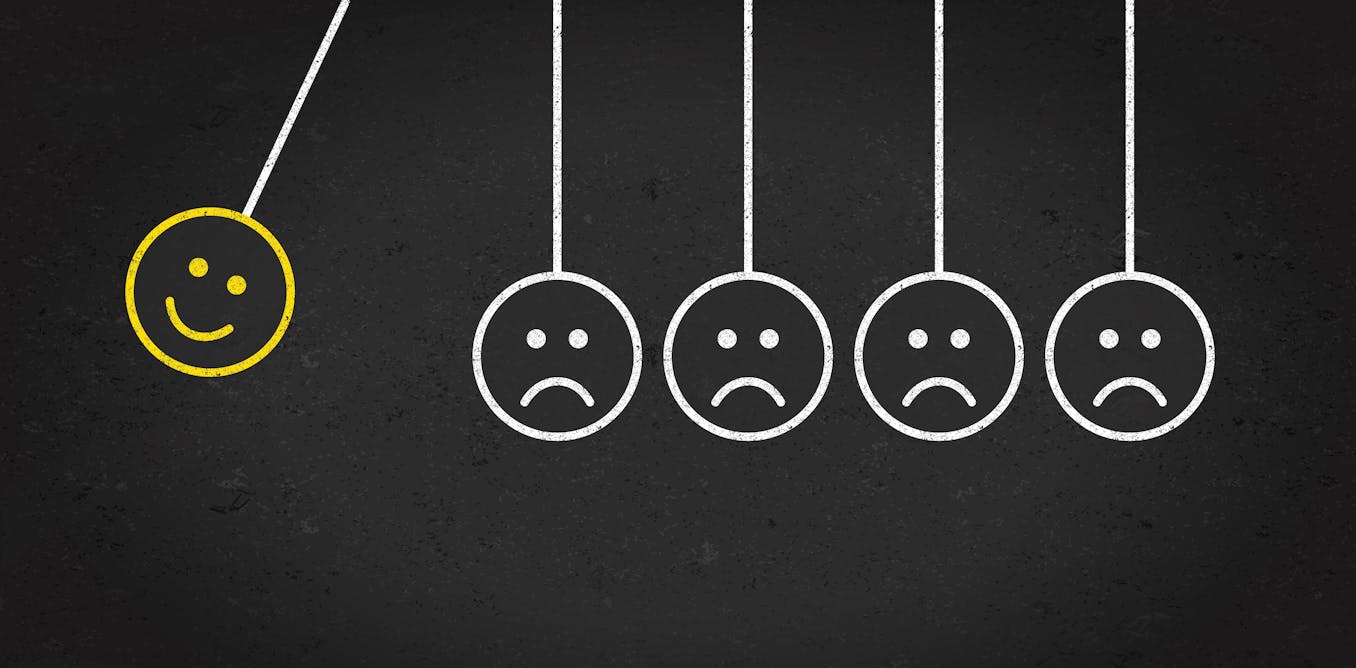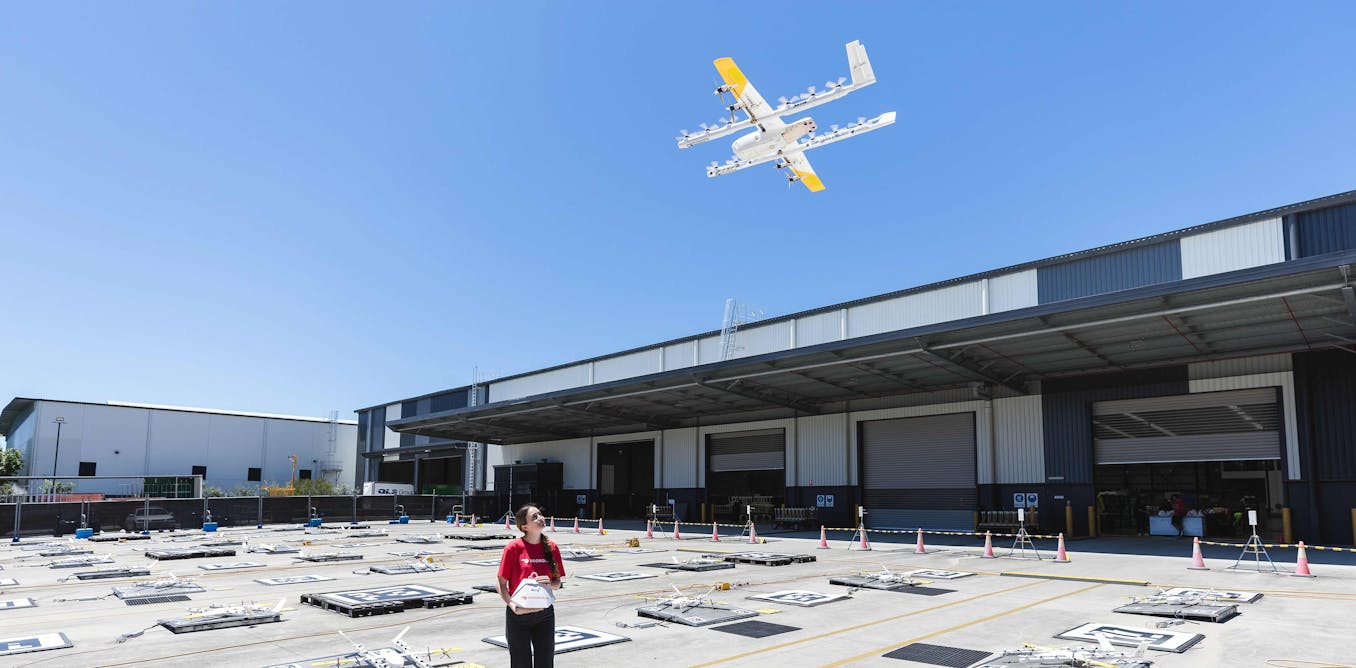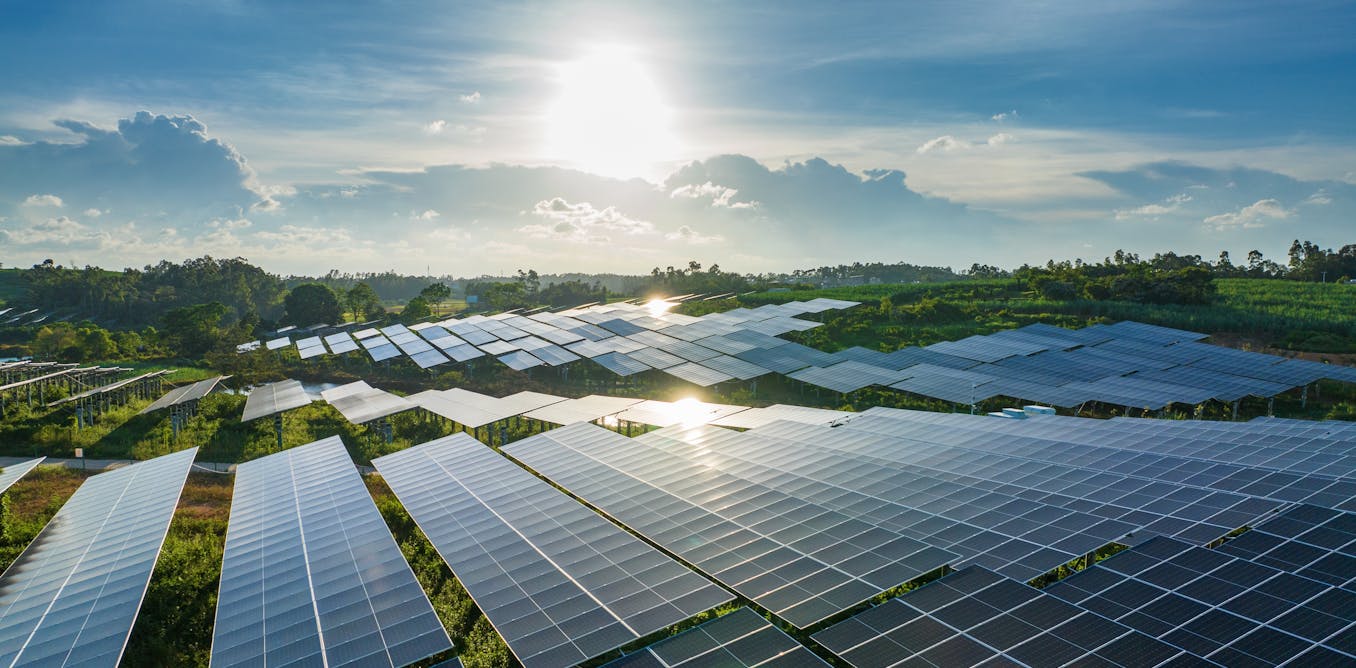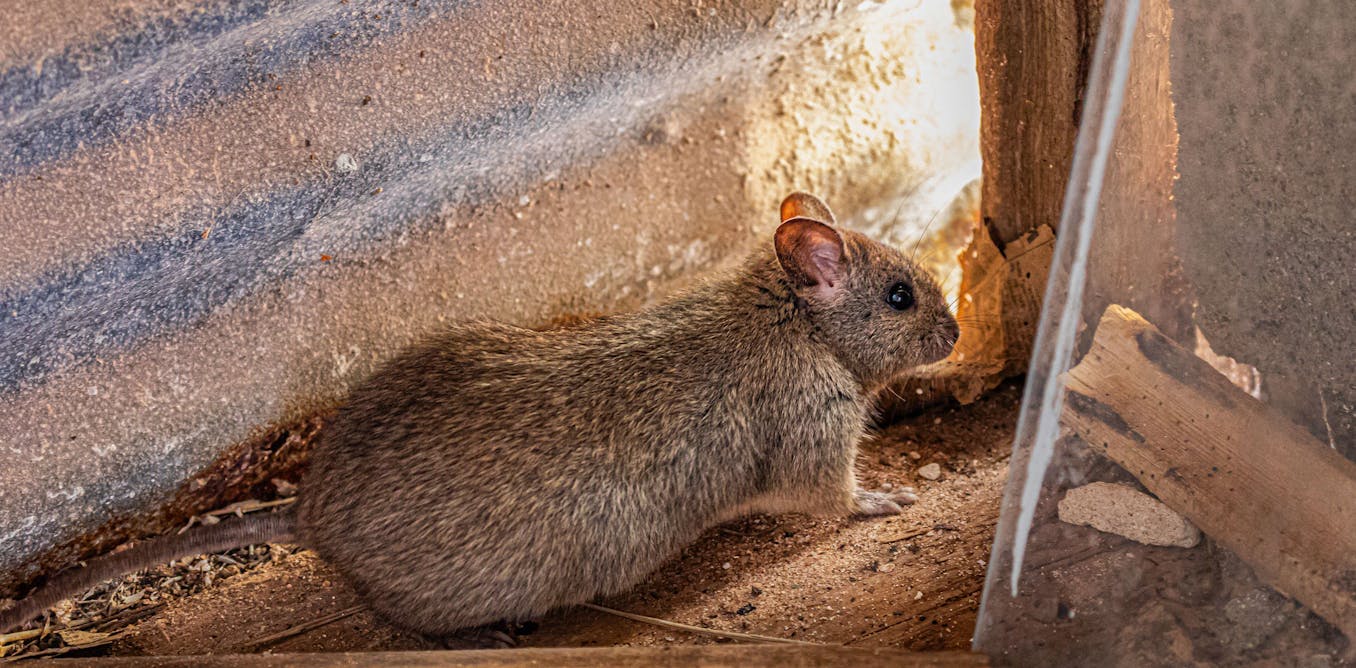Inside Gaza – The war and its consequences | DW Documentary
Over 100 days of war have left tens of thousands dead and widespread destruction in Gaza. The war waged by Israel in response to the Hamas terror attacks of October 7, 2023 has divided the international community. The question now is: what comes next?
DW reporter Mohammed Al-Kahlout lives and works in the Gaza Strip. Since the war broke out, he has been filming people’s everyday lives and the suffering and devastation around him. According to the World Health Organization, only a handful of Gaza’s 36 hospitals are in any way functional, as there is no fuel for the generators and hardly any medication. According to the UN, 1.9 of the 2.3 million people living in Gaza are now displaced within the small strip of land. Mohammed is a journalist but also a victim of this war; he and his family have to constantly flee Israeli army bombardments. According to the Committee to Protect Journalists (CPJ), over 80 journalists have already died in the war. On the way back from filming, rockets were fired at Mohammed’s colleagues’ car. Two journalists were killed.
International endeavors to negotiate a lasting cease-fire have so far failed. One of Israel’s conditions is that Hamas, designated as a terrorist organization by many countries, must release all hostages taken to Gaza. The longer the war goes on, the greater the concern as to whether Israelis and Palestinians can ever peacefully co-exist. Palestinian politicians, Israeli pollsters, political scientists and independent experts on international law all have their say in our documentary. Which scenarios for the Gaza Strip are being discussed, and which of them are realistic?
For on-going news coverage and current updates on Gaza, please visit the DW News channel on YouTube https://www.youtube.com/dwnews or the DW website: https://www.dw.com/en/top-stories/s-9097
#documentary #dwdocumentary
______
DW Documentary (English): https://www.youtube.com/dwdocumentary
DW Documental (Spanish): https://www.youtube.com/dwdocumental
DW Documentary وثائقية دي دبليو (Arabic): https://www.youtube.com/dwdocarabia
DW Doku (German): https://www.youtube.com/dwdoku
DW Documentary हिन्दी (Hindi): https://www.youtube.com/dwdochindi
Watch the video by DW Documentary
Over 100 days of war in Gaza. According to the Hamas-controlled health authorities, over 24,000 Palestinians have died as a result of the Israeli offensive. The majority of them: women and children. Israel took military action as a response to the terror attacks carried out by Hamas in Israel on October 7, 2023.
Approximately 1,200 people were killed, most of them civilians, and over 230 people were abducted to Gaza as hostages. The Israeli government’s declared goal is to eliminate Hamas in the Gaza Strip. We asked a colleague who was already living in Gaza before the war to document everyday life there for us.
Mohammed Al-Kahlout is a reporter who works for Deutsche Welle. He himself has been displaced in the war repeatedly having to flee from the air strikes. He’s been sending us both videos and voice messages since the war began. What we’re experiencing today is the worst and most violent war
We’ve ever had in Gaza for civilians AND for us journalists. The destruction and suffering raise the question of what the future might hold for Gaza and the region. A variety of scenarios are being discussed, but are any realistic options? For over three months, Israeli forces have been waging war in Gaza.
Tens of thousands of bombs and missiles have struck the narrow coastal strip, which has been sealed off since the Hamas terror attack on Israel. Hamas invaded Israel three months ago with the brutal atrocities of October 7th, and in response, we set three goals to destroy Hamas, to return all of the hostages,
And to make sure that Gaza can never again threaten our people. Israeli society sees the attacks by Hamas, designated by many countries as a terrorist organization, as an existential threat. The shock from October 7 is still palpable. Every day we hear new details.
Many times, the feeling is that each new story is worse than the last. And then in addition to that, we have the war going on. And so every day there are soldiers being killed. There are families who are bereaved, and those of us who are paying attention
Are also devastated by what’s going on in Gaza. Knowing that this war is causing such apocalyptic damage in Gaza, that everybody there is suffering. 2.3 million people live in the Gaza Strip, one of the most densely populated areas in the world. On October 13, 2023, the Israeli Defense Forces issued a call
For civilians to leave northern Gaza for the south. Over a million people tried to flee to safety. Among them were Mohammed and his family. I left Gaza City and northern Gaza after the Israeli Army announced that these areas were now combat zones and all residents there would be in danger.
I had to move to the south of Gaza with my father and my sister. The escape route from north to south was very dangerous. There was non-stop shelling. Thanks to God, I got there safely, in spite of all the dangers. Mohammed would regularly send us footage clearly showing
The extent of the Israeli bombardments. The Hamas-led Ministry of Health in Gaza updated the rising official death toll every day. Nobody knew how many dead were still buried under the rubble. More and more people were mourning relatives. Since Ayat Hamouda’s house was destroyed,
She and her baby son have been staying with relatives in Khan Younis. My three eldest children were downstairs in the yard. Suddenly I felt the walls blowing up around me. I heard them crack and then saw them break apart, like pieces of a jigsaw puzzle.
I saw the light coming in through the cracks, then we were sent flying too. Ayat lost consciousness during the attack. After waking up in hospital, she was told that her husband and three of her children had died. My children are dead.
I’ve been married for seven years, and I had four children in this time. Three of them died. I have nothing to remind me of them. My husband is dead, my children are dead, the house is gone, and my phone with photos of them on it.
She does at least have ONE picture, sent by friends. Adam is the only child she has left. I’m the only one left for him. We live in a state of fear. Every night I sleep with him on my lap. If a missile strikes, it will hit us both.
Either we’ll die together or survive together. He has no one except me. And I have no one except him. What will happen to me if he dies? And if I die, who will bring him up? The large number of civilian fatalities has drawn international criticism. Talking to Deutsche Welle, government spokesman Eylon Levy
Justified the actions of Israeli forces. We are seeing scenes of widespread destruction because Hamas spent the last 16 years deliberately redesigning Gaza’s cityscape in order to hide its military assets under civilian areas. This is Hamas’s human shield strategy. But is defeating Hamas a realistic goal?
A question that a growing number of Israelis have been asking too. The government and IDF, they announced that we will continue with the war till the collapse of the Hamas regime, until the total destruction of Hamas’ military capabilities. But you cannot really achieve those goals if you will not be,
You know, with the boots on the ground in Gaza. The Israeli government has not yet said when or whether it will be withdrawing its forces from Gaza. After the elimination of Hamas, the Gaza Strip will be demilitarized and be under Israeli security control and no element in it will either threaten us
Or teach its children to destroy us. Israeli troops had been stationed in Gaza since 1967 but withdrew in 2005. After Hamas took power, Israel imposed a partial blockade of the territory. Israel imposed on Gaza a terrible siege, depriving people from basic things. We didn’t have clean water in Gaza sufficiently,
People had electricity only 6 hours a day, and everything that got into Gaza or left Gaza had to be controlled by Israel. And we had a level of poverty of 70% of the population under the line of poverty, and more than 80% of young, educated people were unemployed.
So, Israel was occupying Gaza in a different way. And now they want to sustain their military occupation inside Gaza. A permanent military occupation of Gaza would be rejected internationally, most importantly by Israel’s most powerful ally, the United States. I made it clear to the Israelis
I think it’s a big mistake for them to think they’re going to occupy Gaza and maintain Gaza. I don’t think that works. While Israeli ground troops advanced in northern Gaza at the end of October, more and more Palestinians sought refuge in the south. Clean water and food soon became scarce,
And sanitary conditions: intolerable. Aid deliveries were reduced to a trickle. This effort to move, to force Palestinians to the south to keep them with minimal amounts of food and water, creating a desperation amongst Palestinians so that, you know, more and more are going to die unless they get out
And are able to access support from Egypt is a man-made forced population transfer. In January 2024 a far-right minister of Netanyahu’s government caused outrage with HIS plan for Gaza. I call on the prime minister and the new foreign minister: this is an opportunity to orchestrate an immigration project
And to encourage the migration of residents from Gaza to the countries of the world. That is not Israeli government policy. We are a lively democracy with many ministers who have many opinions, and those opinions do not reflect the policy of the state of Israel.
Every day that the war continues, the sheer mass of bombs and missiles hitting the narrow coastal strip increases the prospect of Gaza becoming uninhabitable. These explosives that have been used are now in the ground soil. The decimated buildings are toxic, made of toxic materials. That’s now part of the soil.
It’s degraded the environment. And I think that we don’t even have any equipment left in Gaza to remove and start to think about clearing this up. On October 20, Mohammed and members of his family first moved to Khan Younis in southern Gaza like hundreds of thousands of other Palestinians.
After I arrived in southern Gaza, I took my father and my sister to the Red Crescent building in the city of Khan Younis and I went to the Nasser hospital in the Khan Younis region. A cease-fire between Israel and Hamas beginning on November 24 enabled the exchange of hostages for Palestinian prisoners.
Negotiations led to the release of around 100 hostages. Israeli forces estimate that 136 are still being held in Gaza. And there is growing impatience among ordinary Israelis. There is pressure within Israeli society to reach another temporary cease-fire in order to release hostages. But at the same time, you know, the majority of Israelis
Are still supportive of the war. There is a bit of a contradiction there. But the cause of releasing the hostages is certainly the most unifying cause in Israel right now. During the cease-fire, Mohammed documented the situation in the refugee camps in Khan Younis.
The war is taking a particularly high toll on the children of Gaza. The children fell asleep as soon as we arrived here. They hadn’t slept for two weeks; they were so exhausted. I swear to God, they just lay down and went straight to sleep.
And when they woke up, they had a little smile on their faces, because there was no more noise from the artillery and the planes. And no nightmares that they’d die the next morning. Just imagine, the children’s greatest wish was that the sound of the drones and planes would stop.
One local initiative in Khan Younis aims to lift children’s spirits. We want to reach children who have been displaced from the north to the south of Gaza. These children have suffered so much under the Israeli air strikes. The Palestinian Working Woman Society for Development is trying to alleviate the psychological burden.
I’m happy that the clowns have come to see us. We can’t play because of the bombs. But when the clowns came, we played with them and our friends, we danced with them and they gave us lots of toys. On December 1, the cease-fire came to an end and the bombing
Resumed from both sides. In northern Gaza, the Israeli military continued to occupy further territory, reportedly destroying Hamas infrastructure, including parts of the extensive tunnel system. Numerous Hamas combatants were killed, with many other Palestinians arrested. In early December, Mohammed sent us a series of pictures and a distressed text message.
The first seven people in the one photo, he said, were his brothers and cousins. I was surprised to see a picture of my brothers and cousins circulating on the Internet. I didn’t know where exactly it was taken in Beit Lahiya, northern Gaza. Eyewitnesses said that the Israelis stormed the area
And all the young men there were arrested. The arrests were justified shortly afterwards by Israeli government spokesman Eylon Levy. We are talking about military-age men who were discovered in areas that civilians were supposed to have evacuated weeks ago. We’ve been calling for an evacuation of those Hamas strongholds
In order to locate the Hamas October 7th monsters with minimal harm to civilians. Now those individuals will be questioned, and we will work out who indeed was a Hamas terrorist and who is not. Of course I asked my brothers, cousins and uncles if they wanted to come to the south with us,
But they refused. They said there were dangers and strikes everywhere, and that everyone had to suffer their own fate. In the second half of December, the Netanyahu government started bombing southern Gaza too, with increasing intensity. Among the buildings hit was the Nasser hospital in Khan Younis, where our reporter Mohammed was staying.
I had to leave the Nasser hospital last night after it had been hit twice in the morning and the evening. The building next to where I was sleeping came under attack. Of Gaza’s 36 hospitals, only a handful are functioning and even then, only at rudimentary capacity and largely without electricity or medicines.
Bombing hospitals is classified as a war crime, unless they’re being used for military purposes, as Israel and US intelligence claim to be the case. Hamas rejects the accusations. Israel has been facing growing international criticism over its operations in Gaza. On December 29, South Africa filed an application
At the International Court of Justice in The Hague, asking it to investigate an alleged violation of the Genocide Convention. We think it is outrageous that Pretoria has chosen to play advocate for the devil by covering up the crimes of the Hamas rapist regime and giving it legal and political cover.
And we have no doubt that if there is justice in the world, the International Court of Justice will throw out Pretoria’s outrageous accusations and make it very clear it was Hamas that perpetrated an act of genocide on October 7. Since January 11, the judges in The Hague
Have also been deliberating over a request by South Africa to order an immediate end to the war. The genocide case itself could take years. Even if the war were to end soon, Gaza’s future is uncertain. There is as yet no strategy as to who should govern Gaza after the war.
Some have raised a potential option involving Arab nations. There are various signals from Arab states that they also see a role for themselves in the future of Gaza. There’s also huge domestic pressure on the streets for them to take action. They can bring all the international forces in the world
And put them on the borders. We don’t care about that, but they cannot bring other countries to rule us. Would German people accept that France will rule them or Britain or any other country? Of course not. And Palestinians deserve to have independence, deserve to have the right of ruling themselves.
Who should take political responsibility for the people of Gaza in future? One possibility would be the Palestinian Authority, which governs in the West Bank, and is led by the internationally recognized president Mahmoud Abbas. The Palestinian Authority does not have capacity to deal with the scale of what’s taking place in Gaza.
It’s already deemed illegitimate by the Palestinians because it hasn’t been able to deliver on basic services, but also on a peace agreement that would see an end to occupation. It is an authority without authority, because Israel deprived it from all authorities. It is an authority under Israeli occupation.
It cannot control any area in the West Bank. They can’t even control the revenues of the Palestinian Authority, which come from Palestinian taxpayers. Israel is also controlling that. Hamas has ruled Gaza since the elections in 2006. For years, the group received millions of dollars in financial backing from Qatar
A connection that research by the New York Times reveals was not only tolerated, but actually supported by Benjamin Netanyahu. Netanyahu had been advancing a policy of dividing the Palestinian leadership, strengthening or at least tolerating Hamas, allowing it to be supported with Qatari money
In order to avoid reaching any sort of political resolution to the conflict. They wanted Hamas to remain in place, keep the threat managed, but ensure that there was a divided Palestinian leadership. But the question now is: what is to be done with Hamas? They will not be able to eliminate Hamas.
Hamas is not just a military structure. And the question here, is there a possibility that Hamas could be part of the solution rather than part of the problem? The answer is yes. I know them well. They would accept a two-state solution if there was a real two-state solution.
Now, there is, of course, a lively political debate about how we reach a secure peace with the Palestinians. And if there’s one thing that everyone in this debate can agree on is that there is no room for the Hamas rapist regime after this war, because Hamas exists in order to oppose peace.
Hamas doesn’t want a two-state solution. Hamas wants the final solution. A two-state solution has been under discussion for decades. It would involve a Palestinian state consisting of the Gaza Strip and the West Bank, with East Jerusalem as capital. But Israelis have been building settlements in the West Bank
For decades, in violation of international law. You can’t have settlements and a two-state solution, it doesn’t work. Settlers are already controlling 60% of the West Bank. And in this area of 60% of the West Bank, Palestinians are not allowed to build a school, a kindergarten, a clinic, a house, nothing.
Netanyahu continues to reject the two-state solution. I’m proud that I prevented the establishment of a Palestinian state, because today everybody understands what it could have meant after seeing the little Palestinian state in Gaza. Everyone knows what would have happened if we had capitulated to international pressures and enabled a state like that
In Judea and Samaria, surrounding Jerusalem and on the outskirts of Tel Aviv. While Israelis continued to face rocket attacks from Gaza and fear for the fate of the abducted hostages, hundreds of people were dying every day in Israeli strikes on southern Gaza too.
On January 7, Mohammed sent us another video and a message. An attack by the Israeli forces had killed most members of a well-known Palestinian family men, women and children. Last night a chalet belonging to the Abu Al-Naga family was attacked. Like many others, this family was forced to leave Gaza City
And moved to the South. The chalet was hit in a strike. I was there in the morning with other journalists, and we filmed what happened and how the family, relatives and neighbors tried to pull the bodies out from under the rubble. Oh, my dearest ones:
I spoke to my mother-in-law and she asked why I left. I told her that I wanted to say goodbye to my family, and then come back. We have a travel permit. We wanted to escape this injustice. They were supposed to be leaving today. Why are they doing this to us?
The girls died last night – I can’t take it anymore. The girls are gone, Hamoud is gone. My dearest Hamoud. Nobody asks about us or defends us. Over 30,000 people have been made martyrs so far, and we don’t know what’s next. None of the parties will compromise,
And the people are the ones paying the price. Death will come to us too. We are still alive, but we’re expecting to die any minute. Rebuilding Gaza after the end of the war and making it fit for people to live in again will be a colossal undertaking.
There will have to be multiple actors involved. Too often we use the word international community to refer to rich Western countries. I think there will also be Middle Eastern countries involved. I think we should end the era of assuming that the international powerbrokers are only a small subset of powerful Western countries.
What we do know is that the Arab Gulf states that usually are tapped to help rebuild Gaza have said, you know, this is not their responsibility because they have been footing the bill for this kind of destruction on a lesser scale, but they’ve been paying for the rebuilding of Gaza repeatedly.
First of all, I think the responsible party for destroying Gaza is Israel, and it must be held accountable for that. And second, I think rebuilding Gaza is possible. We are very resilient people. And I think Israel must be forced to pay compensation for the unnecessary destruction it has caused.
And the day after Hamas, the international community must ensure that Gaza is rebuilt peacefully and it’s rebuilt in a way that ensures that concrete goes to people’s houses and not into Hamas terror tunnels. For our reporter Mohammed, every day poses danger as he would see again on January 7,
After filming the Abu Al Naga family’s destroyed chalet. After we finished filming, I went back to the Kuwait Hospital. When I got there, I found out that the car of my colleagues had been targeted, the ones who had just been filming the site of the explosion with me.
I was surprised by the names of the dead. Among the journalists sitting in that car was Hamza Al-Dahdouh, son of Al-Jazeera’s bureau chief, and another colleague of mine: Mustafa Al-Thuraya. That Al Jazeera journalist was riding in a car with a Hamas terrorist who was operating a drone.
In general, it is a bad idea to hitch rides with terrorists in an active war zone because you might get hurt. Now, I’ve seen that figure of the number of journalists who are killed, and it’s important that you take a close look at that list,
Because I counted over 20 people who are written as being Hamas affiliated media. According to the Committee to Protect Journalists, over 80 journalists have been killed in the war to date. Noone can say when the war in Gaza will end. The whereabouts of the remaining hostages are still unclear,
As their relatives fear for their lives. In Gaza itself, people are dying every day in Israeli attacks. 1.9 million Palestinians are now displaced there. According to the World Food Program, over half the population is threatened by extreme or severe hunger. Given the scale of the destruction, the mutual hatred and the immeasurable suffering:
Is there any hope of peace in Gaza? Of reconciliation between Israelis and Palestinians? I never give up hope that that peace is possible. This is definitely a dark time to be thinking about, you know, peace talks or some grand solution. That will come. I mean, you don’t make peace between two friends.
It’s always two enemies, two opposing parties that make peace. Maybe after a generation, two generations, we will speak about any kind of coexistence, but not in the coming years. The Israeli military attacks are forcing people in Gaza further south towards the border with Egypt, which is sealed off. Mohammed is now there too.
After everything we have seen and experienced, there is no future for Gaza. The destruction is devastating. For the first time in my life, I also had to flee. The displaced people I have been filming all have one wish: for the war to end so they can return to their homes in northern Gaza.
About DW Documentary
DW Documentary gives you information beyond the headlines. Watch top documentaries from German broadcasters and international production companies. Meet intriguing people, travel to distant lands, get a look behind the complexities of daily life and build a deeper understanding of current affairs and global events.
Video “Inside Gaza – The war and its consequences | DW Documentary” was uploaded on 01/23/2024 by DW Documentary Youtube channel.





































